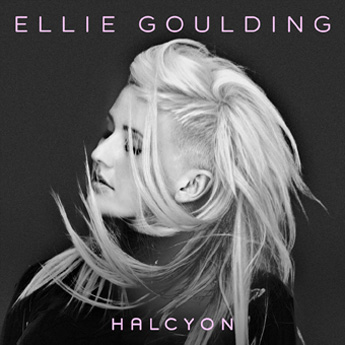
REVIEW: PAUL BANKS – BANKS (2012)
If Interpol, Julian Plenti and Paul Bankshave collectively taught us anything, it’s that Paul Banks loves music. Now, that can more or less be said of all musicians, but there are different degrees, different levels of the relationship. Do you need three musical outlets/monikers in three years to demonstrate an undying love for the craft? No. But if those are the channels necessary to fulfill the musical ambitions that an artist encompasses, then it’s pretty admirable to take the time to set all the different wheels in motion.
The 2009 release Julian Plenti Is… Skyscraper was the first solo effort from the longtime Interpol frontman. Alter ego Julian Plenti was dusted off because many of the songs were written pre-Interpol, when Banks regularly used the Julian Plenti persona. The songs were by no means a drastic shift from previous Interpol material but they did give Banks room to explore some individual interests, including the use of samples and instrumentals. With Banks’ second solo album, the aptly titled Banks, he furthers these explorations (two of the 10 album tracks contain either no vocals or sampled vocals).
Banks kicks offs with “The Base,” a bass-heavy parade of layers and whimsical arrangements highlighted by Banks’ angelic hook: “Now and then I can see the truth above the lies/ Now and then, oh, I feel those beauties this life belies.” It’s maybe the album’s most immediately accessible track, thus working well as the lead single. “Arise, Awake” begins with a soothing alarm clock of delicate guitar work and gentle drums. Banks spices up the tune by including a sample made from dialogue with “the happiest cabby in the world.” It’s different, but Banks pulls it off.
In fact, most of the samples work well on Banks, even if some are a little experimental. The instrumental “Another Chance” includes looping dialogue from the Sebastian Ischer film Black Out. Ischer is a friend of Banks and the clip is of a character in the movie giving a panicky and borderline enraged explanation of his faults that stem from a “neurological condition.” Banks pairs the intense scene with rising and falling string work, building to an escalating climax. “Lisbon” is definitely the lesser extreme of the instrumentals but still packs a hearty, arching punch. Neither, however, seem to capture the same haunting, simplistic beauty of Julian Plenti’s “H.”
“Young Again” finds Banks chill and almost euphoric; it’s a nice change of pace from his more brooding earnestness which can be heard on “I’ll Sue You” and “Paid For That.” Yes, “I’ll Sue You” is a strange title for a rock song. Is it meant to be ironic, sarcastic, a joke? It’s unclear, but it’s obvious Banks’ is fully aware of any absurd connotations of the term. It’s as if he says it because it is absurd; as if that’s the level he’s been pushed to in the song’s pursuit, which appears to be a long-ago love interest. Either way, move beyond the line. The track culminates with a fantastic cathartic peak that will make you forget the title.
“Summertime Is Coming” closes out Banks, and if you’ve listened to any of Interpol’s previous four albums, then you know album closer isn’t just another slot on the track list. “Leif Erikson,” “A Time To Be So Small,” “The Lighthouse,” and “The Undoing” are epic songs, some of the finest the band has ever written. Banks kept alive the tradition closing out Julian Plenti with the wonderful aforementioned “H.” The streak continues with “Summertime Is Coming.” It is a little bit of a cheat because the track was included on Julian Plenti Lives…, Bank’s pre-album EP, but nonetheless the song is a standout. What initially begins as a pop-tinted anthem to summer (“sweet like a peach on the beaches.”) swan dives deeper. About three and a half minutes in, it feels like the song is going to end any second, but it doesn’t, and it’s better for it. Banks swoons in with an acoustic guitar and raw yearning vocals: (Is this the right time to know me/ Is this the right time to know/ Is this the right sign to show me?’) While so sparse, it’s a grand, powerful finish.
Even with Banks’ continued solo projects, he has been adamant that Interpol is still alive and well, and work on a new Interpol record is never too distant. It also appears that the solo albums aren’t just one-offs, and that more solo efforts can be expected in the future. It adds up to an ambitious workload for Banks, but it seems he wouldn’t want it any other way. His second solo album is a reinforcement that Banks can balance the roles of frontman and solo artist, and can do so better than most.
Rating: 7.0/10




Post a comment